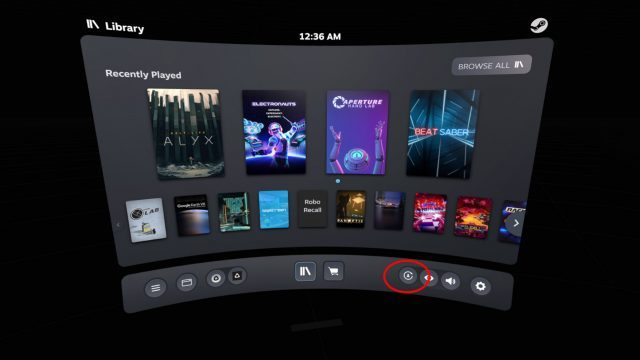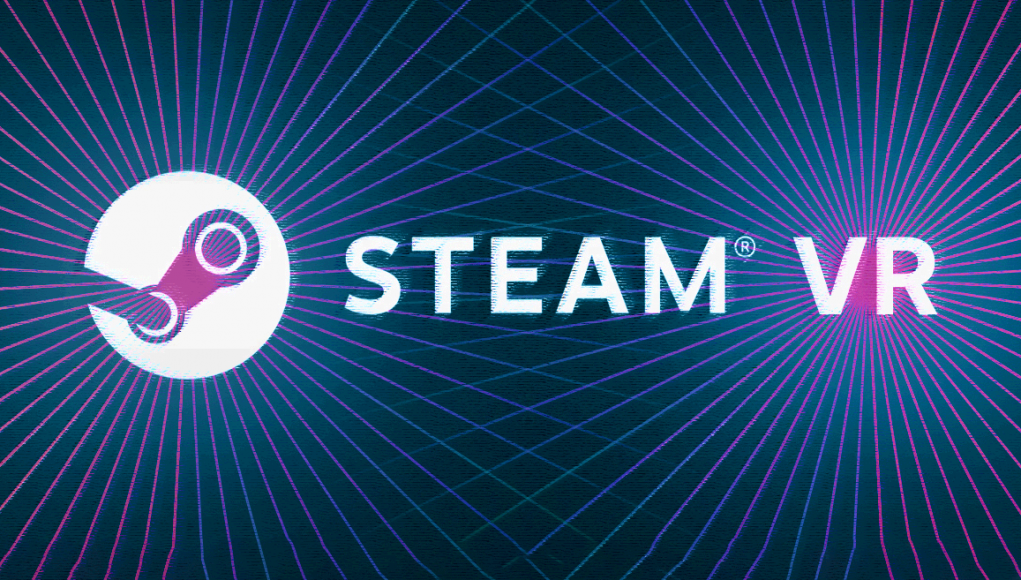The latest main-branch update to SteamVR adds a dashboard button which makes it effortless to redefine the ‘forward’ and ‘center’ orientation of your playspace, a simple but useful feature for certain games.
SteamVR has been around since the earliest days of consumer VR, but Valve has finally now added a simple way to reorient and recenter your playspace.
How to Recenter and Reorient Your Playspace in SteamVR
When you download the latest main-branch update of SteamVR, version 1.13, you’ll notice a new button on the SteamVR dashboard (an icon of a person with an arrow around it).

Clicking the button will start a three second countdown timer, at which point your position and looking direction will be used to re-define the center and forward directions of your playspace.
Why is This Useful?
This is exceptionally useful for certain games, especially those that expect the player to stand or sit mostly in a specific spot. It’s especially useful for smaller or very rectangular playspaces.
Beat Saber, for instance, would benefit from being able to move the ‘center’ of the game a bit further back from the center of the playspace, giving your arms more room to swing in front of you (considering you won’t be swinging behind you).
And now in seated games like driving simulators, you can easily sit down in your chair and then reset the forward position of your playspace so that your seat and head position are perfectly aligned with the position of the car around you.
Further, some players may benefit by reorienting the forward direction of their playspace in the optimal direction for base station tracking. Especially useful in scenarios where you may be using a single base station.
Why the Wait?
While this has been easy to do on Oculus headsets for a long time now, it was only possible in SteamVR by doing a fresh room setup (which means taking the headset off and retracing your playspace) or with third-party tools.
The root of the missing feature may have been Valve’s early commitment to ‘room-scale’ VR gaming. Room-scale games, which are designed with zero virtual movement, don’t rely on a concept of ‘forward’, nor do they need an explicit ‘center’ beyond the central point of the playspace bounds. With time though, it’s become apparent that there’s practical reasons for easy reorientation and recentering, even considering room-scale gaming (not to mention that only a few VR games today are designed purely for room-scale movement). Or maybe the feature was just low on their priority list for all these years? We’re just glad to see it’s finally here.
Other Changes in SteamVR 1.134
SteamVR 1.13 also brings a handful of other changes out of beta, including an improved pass-through view for the Index headset which Valve calls Room View 3D. We detailed the feature when it first debuted in beta back in June.
Also out of beta with 1.13 is preliminary support for OpenXR standard in SteamVR, an open standard for VR development that’s designed to make it easier for developers to create VR content which can run on different headsets with minimal changes to the code.







